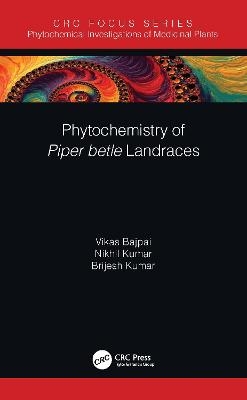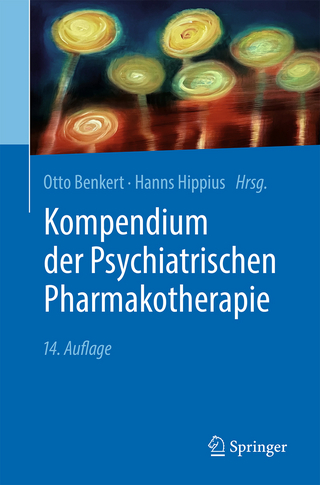
Phytochemistry of Piper betle Landraces
CRC Press (Verlag)
978-0-367-49971-6 (ISBN)
Piper betle (betel vine) a pan-Asiatic, tropical plant, which can also grow under mild subtropical areas, is essentially grown for leaves which are chewed with array of additives besides slaked lime. The plant is cultivated widely in India and its surrounding areas. Phytochemistry of Piper betel landraces presents a brief on the distribution, historical and cultural aspects, and properties ascribed to this plant in the ancient texts. Phytochemical and pharmacological information has also been included to underscore the importance of this plant in the present time. A detailed account on metabolic profiling employing modern methods is included, such as real-time, direct analysis of the flight mass spectrometric method and chemometric analysis for characterization of the available biodiversity and signatures specific to gender and geographical location. It was also possible to identify the gender of unknown landraces, with the help of principal component analysis.
Features:
Elaborates on the chemical diversity within Piper betle.
Piper betle leaves have mouth freshening antimicrobial compounds.
Use of chemical signatures for the identification of different Piper betle landraces, their gender and geographical locations.
Vikas Bajpai completed his PhD from the Academy of Scientific and Innovative Research (AcSIR), New Delhi, India and carried his research work under supervision of Dr. Brijesh Kumar at CSIR-Central Drug research Institute Lucknow. His research includes development and validation of LC-MS/MS methods for qualitative and quantitative analysis of small molecules of Indian medicinal plants. Nikhil Kumar is a plant physiologist by training and worked in different capacities for about thirty years and finally superannuated from CSIR-National Botanical Research Institute (NBRI), Lucknow, India. He has worked on one of the very important cultural plants of India (including South Esat Asia) Piper betle which effectively broadened his understanding as how plants contributed in the development of human skills. He has published more than fifty research papers in national and international journals. He brought to focus the ascpect of dioecy in P. betle and T. cordifolia and its possible functional implications in adaptation and biological activities. Brijesh Kumar is a Professor (AcSIR) and Chief Scientist of sophisticated analytical instrument facility division, CSIR-Central Drug Research Institute, Lucknow, India. Currently he is facility in charge at Sophisticated Analytical Instrument Facility (SAIF) division of CSIR-CDRI. He has completed his PhD from CSIR-CDRI Lucknow (Dr. R.M.L Avadh University Faizabad UP, India). He has to his credit 7 book chapters, one book and 145 papers in International journal of repute. His current area of research is applications of Mass Spectrometry (DART MS/Q-TOF LC-MS/4000 Q Trap LC-MS/ Orbitrap MSn) for qualitative and quantitative analysis of molecules for quality control and authentication/standardization of Indian medicinal plants/parts and their herbal formulations. He is also involved in identification of marker compounds using statistical software to check adulteration/substitution.
Introduction. Metabolite profiling of Piper betle landraces by direct analysis in real time mass spectrometric technique. LC-MS analysis of Piper betle leaf and evaluation of their In Vitro antimicrobial activity. Conclusions. References. Index.
| Erscheinungsdatum | 01.03.2021 |
|---|---|
| Reihe/Serie | Phytochemical Investigations of Medicinal Plants |
| Zusatzinfo | 10 Tables, black and white; 18 Illustrations, black and white |
| Verlagsort | London |
| Sprache | englisch |
| Maße | 138 x 216 mm |
| Gewicht | 122 g |
| Themenwelt | Medizin / Pharmazie ► Medizinische Fachgebiete ► Pharmakologie / Pharmakotherapie |
| Medizin / Pharmazie ► Pharmazie | |
| Naturwissenschaften ► Chemie | |
| ISBN-10 | 0-367-49971-1 / 0367499711 |
| ISBN-13 | 978-0-367-49971-6 / 9780367499716 |
| Zustand | Neuware |
| Informationen gemäß Produktsicherheitsverordnung (GPSR) | |
| Haben Sie eine Frage zum Produkt? |
aus dem Bereich


